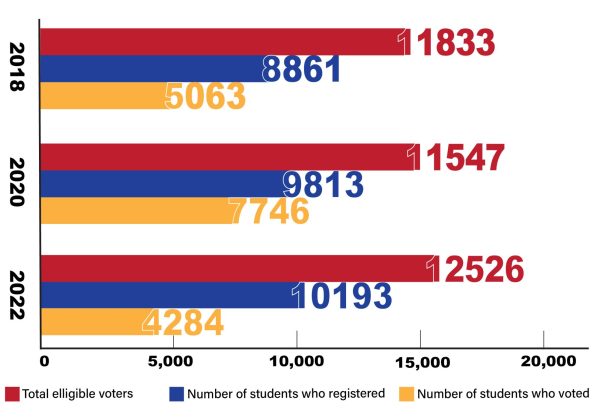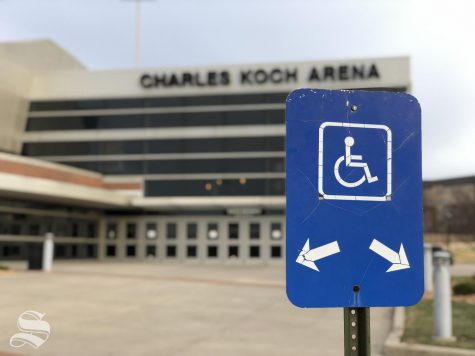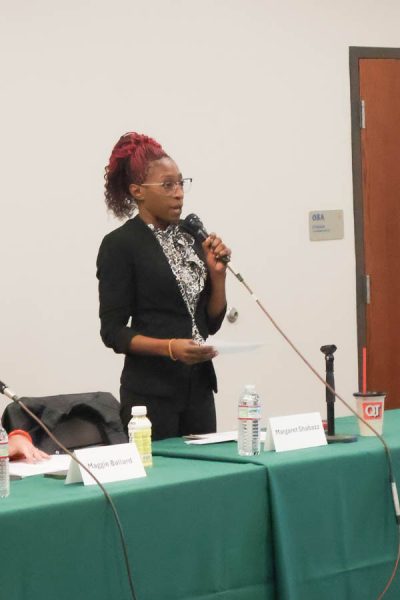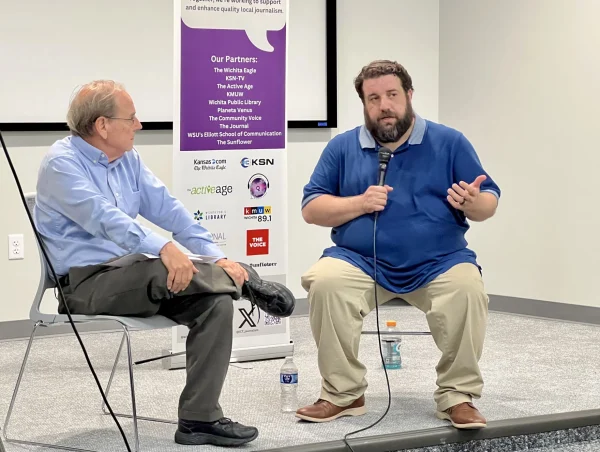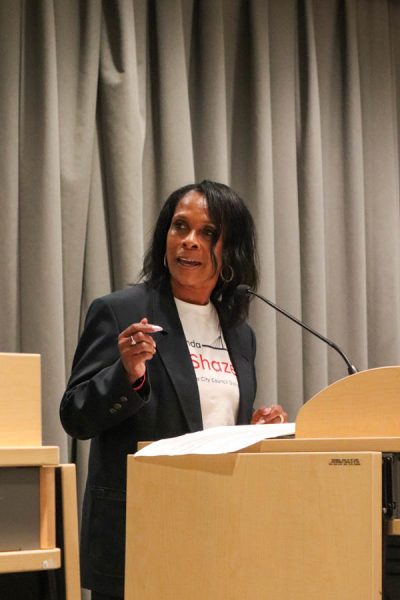Diversity advocates work to promote Hispanic student enrollment, retention
From 2012 to 2022, the Hispanic population at Wichita State has gone up nearly 10%. Information retrieved from the Kansas Board of Regents website.
When Antonio Rojas, an aerospace engineering major, entered his first Wichita State lecture hall, he was baffled by the overwhelming majority of white students in the classroom.
“I’m just jam-packed with people who don’t look like me, who don’t talk like me, who don’t sound like me,” Rojas said. “I was like, ‘Damn.’ I had never felt like a minority where I came from, and this place is where I first got that taste of ‘Oh yeah, I’m underrepresented.’”
Many minority students, like Rojas, initially didn’t see an accurate reflection of Wichita State’s self-proclaimed status as “the most diverse university in Kansas.”
Now, as a champion for inclusivity and diversity, Rojas is working alongside faculty and staff to help Wichita State achieve Hispanic Serving Institution status to benefit people of all races and ethnicities.
Last fall, the university announced that over 15% of students at Wichita State are Hispanic. With this milestone, WSU is on track to receive designation as a Hispanic Serving Institution by 2030. If Wichita State achieves this, it will become Kansas’s fourth and largest Hispanic Serving Institution.
“The increase in the Hispanic student body is amazing, to not only back up that phrase (the most diverse university in Kansas), but to show for it,” Rojas said. “(We hope to) diversify our school, not just make it Hispanic.”
Hispanic Serving Institutions (HSI) are U.S. Department of Education-sponsored universities, with at least 25% of their full-time undergraduate student population identifying as Hispanic. With the title also comes access to three exclusive government grants, with the potential maximum award size (per grant) of $600,000.
Rojas, president of the Hispanic American Leadership Organization (HALO), credits the growing Hispanic student enrollment and retention numbers to efforts taken by various groups and offices on campus, like the Office of Admissions, Office of Diversity and Inclusion (ODI), Passage 2 Success, the Office of Student Engagement, Advocacy and Leadership, and their Hispanic-based service organizations.
Rojas believes that showing consistent support for Hispanic students through specific initiatives, like Sí Se Puede Day, an event where high school seniors will participate in workshops with professors and guest speakers and compete for scholarships, is essential to the growth and retention of the Hispanic student population.
While any HSI-awarded funds will be managed and distributed by university representatives, Rojas hopes that the funding will go towards creating better events for all WSU students and improving the quality of CAPS and mental health care for minority students.
“Being underrepresented — being a minority — comes with its own difficulties, mentally,” Rojas said. “If (the university) can get better funding for better programs, for more support, that’ll help everybody all around.”
While student advocates like Rojas will graduate long-before WSU obtains HSI status, they believe the university will continue supporting Hispanic-student-based initiatives and make the best possible choices for minority students.
“While I won’t be there to see what’s happening,” Rojas said. “I believe in the people that are in the higher places (university admins). I believe in their chance, their ability, and their beliefs that they’re for the students and will always be for the students.”

Allison Campbell was the editor-in-chief of The Sunflower during the 2024-2025 year. Campbell is a senior pursuing a journalism and media production...

Thy Vo was the advertisement manager and design director for The Sunflower for two years. Vo graduated with a degree in graphic design and a minor in marketing.Vo...




